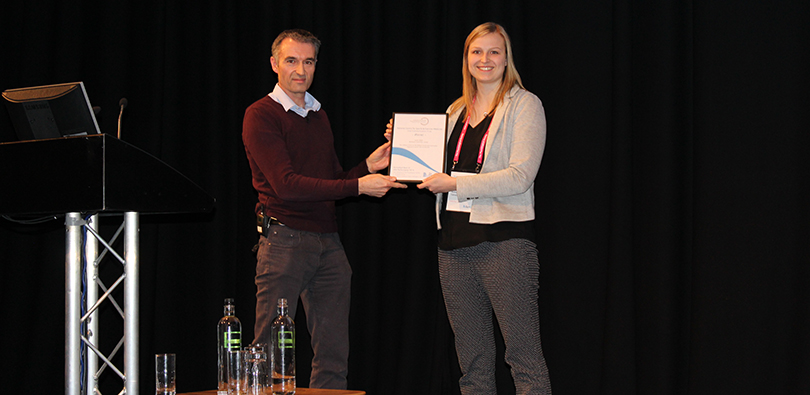
The NCSEM recently awarded Early Career Investigator prizes at the Physiological Society meeting ‘Biomedical Basis of Elite Performance’.
Early career scientists were invited to apply for best oral communication and best poster presentation depending on the type of communication they were presenting.
The oral communication competition saw 13 entrants present for 10 minutes, followed by questions and answers. The judges took into consideration presentation skills, the clarity of the abstract and PowerPoint presentation, scientific content, and ability to answer questions.
The winning entry was ‘The influence of sex on the skeletal muscle gene expression response to sprint interval exercise’ by Lauren Skelly, McMaster University, Canada.
Miss Skelly said: “I felt honoured to receive the award in the company of such excellent oral presenters. The recognition helps to confirm that studying sex-based differences in exercise physiology is an important area of research. I thoroughly enjoyed the conference and I’d like to thank the NCSEM for their support of early career scientists.”
The poster communication competition, with 29 entrants, was judged on presentation skills, clarity of the abstract and poster, scientific content, and responses during the question period.
Fiona Lewis from King’s College London, collected the award for her entry ‘Active GSK3 and a functional β-catenin-TCF4 transcriptional complex are necessary for the differentiation of human myogenic progenitor cells’.
Dr Lewis said: “I thoroughly enjoyed discussing my research with experts in the field, and am looking forward to progressing my research to the next step. The poster I presented contained unpublished findings and as a result of winning this prize we feel confident to move towards publication of this research.”
The Physiological Society was pleased with the high standard of the applications. It was excellent to see such a quality of work from those early in their career and the Society hopes the prizes will sew into the future of these young academics.